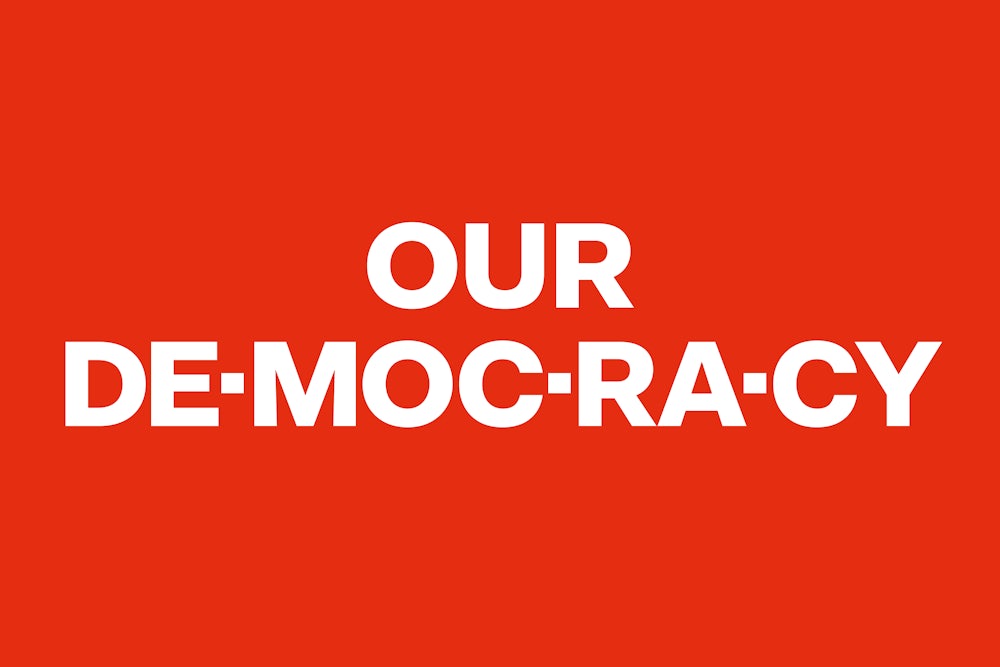“That’s what’s at stake right now: our democracy,” Barack Obama said in his speech at the Democratic National Convention in August. Some version of this warning—somehow both apocalyptic and Pollyannaish—reverberated among political analysts for the entire presidential campaign, as it has for generations. The Arena, an 1890s magazine of the left, invoked the phrase sarcastically, saying that “our democracy” was happy to let its citizens become “serfs” to big business. In 1914, The Atlantic wrote that “our democracy must not be weakened by dilutions of poverty and ignorance from abroad.” Most enduring, though, are uses of “our democracy” as the sugar that helps the bitter medicine of American governance go down, as when The Saturday Evening Post rhapsodized in 1933 about “American destiny, American ideals, the American way of life, our democracy, our institutions.”
You can usually find “our democracy” in peril, forever being defended from some enemy, at home or abroad. In the Cold War, the danger came from communism, and by the 1990s, with the Red threat mostly subdued, “our democracy” became something to be “strengthened,” usually against internal threats—often abstract ones, like voter apathy or polarization. In the Trump years, liberals were the main purveyors of the phrase. It fits a rhetorical pattern, embraced by the Biden campaign, of emphasizing patriotic moral abstractions over more concrete policy ambitions.
Biden’s often soaring rhetoric aspired to “go high,” rather than to play the demagogue down in the mud (even though the mud is where most of us live). This is what makes the appeal to “our democracy” so paradoxically dire and cheerful. While accepting the Democratic nomination, Biden framed the campaign against Trump as a campaign “to save our democracy” from catastrophe. But without grappling with all the ways in which “our democracy” is already a catastrophe, these words sound as vacuous as that Saturday Evening Post editorial, which was, by the way, a tribute to Herbert Hoover.
What would we be saving—the obscene ad spending, gerrymandered legislatures, broken voting machines, byzantine registration laws, felon disenfranchisement, and all the legal means by which states can suppress the Black vote? The continued existence of the Senate, an instrument of minority party rule? Or the coterie of unelected legislators-for-life better known as the Supreme Court? The task is not to save “our democracy”—we need to build it first.
